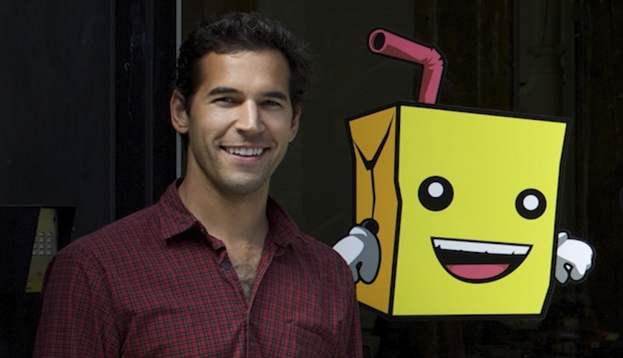A trio of former Zynga veterans have had success out of the gate with mobile game developer start-up JuiceBox Games. Jason McGuirk, Chief Technology Officer, and Zak Pytlak, creative director and CEO Michael Martinez have assembled a team of 20 engineers, artists and game designers to create original mid-core games for the growing mobile games industry.
The company has raised $2.5 million from Initial Capital, General Catalyst, Index Ventures and Maveron, as well as individual investors Scott Dale, a member of the Zynga founding team, and John Riccitiello, former Electronic Arts CEO. The JuiceBox Games board includes Kristian Segerstrale, founder and CEO of Playfish and former Supercell board member.
The studio’s first mobile game, HonorBound, was downloaded over 3 million times across Android, Amazon and Apple platforms. The free-to-play game combines the collectability of Pokemon with the RPG battles of Game of Thrones (Bobby Tahouri, whose music can be heard in the HBO TV series, scored the game’s soundtrack). The developer created more than 500 character art pieces in its in-house studio, focusing on a simple look and feel that appeals to the booming mid-core gaming market that companies like Kixeye have banked on for years.
Martinez, who worked on games like Zynga Poker and Farmville, explains the opportunities that these mid-core gamers have opened up in the mobile space in this exclusive interview.
What are the challenges of creating a game that will emerge through the crowd in today’s environment?
With so many options for players, it’s incredibly challenging to even be noticed, let alone hold players’ attention. We take it very seriously when a player chooses to spend their time with HonorBound and our goal is to reward that time with an immensely entertaining experience.
We create games that we’re passionate about and think that passion comes across for our players. We built HonorBound because it was a game we actually wanted to play that didn’t exist yet.
How have you seen the business model of free-to-play evolve?
The freemium business model is always evolving. Both the game makers and the players are becoming more sophisticated. Game makers deliver higher quality content and players demand that higher quality. Mechanics that were everywhere three years ago seem very 1.0 today. One of JuiceBox Games’ core values is to Respect the Player. It seems obvious, and it is, but we really take it to heart. Our goal is to always provide great entertainment and value to our players. And our job is to really focus on the fun first, rather than focusing on monetization.
What opportunities has mobile opened up for a start-up like yours?
It means everything to our business. We’re able to build a deep and engaging world that is literally an arm’s reach away.
What has the increase in processing power on smartphones and tablets opened up for the games you can create?
Bigger and more immersive worlds.
What did you learn from Zynga (good or bad) that you’re applying to your studio?
It was a tremendous education. Prioritization is extremely important to us. On any given day, there are hundreds of things we could be working on, and we need to make sure we focus on a few goals and that they’re the right projects.
One of the things I love about JuiceBox Games is how everybody works to make the game better and that’s what our conversations are centered around. That common goal unites us.
Can you talk about your first new IP?
The HonorBound universe is really exciting for us. We were inspired by games like Pokemon and Skylanders with a recognizable cast of characters. We’re tremendously proud of the art style of HonorBound and that’s kudos to our great art team who developed everything in-house. The comic-book feel stands out in the App Stores and our players have responded really positively.
How were you able to achieve 3 million downloads while in stealth mode?
We intentionally kept our heads down and focused on the players and their experience. Players don’t know (or care) if you’re in stealth mode or not. They find a game and care about whether it’s fun.
How do you develop games for the new casual and mainstream gaming audience?
As a studio, it’s important to know your target audience. We’re focused on midcore (more competitive with deep investment). We definitely want to make our games accessible and draw in a wide audience, but you have to strike the right balance. If the tone isn’t clear you can end up disappointing both camps.
What role do you feel transmedia plays today in games when you look at Rovio’s success with videos and merchandising?
It’s something we’re interested in and excited about, but we’re focusing on our core competency first. We’ve had offers to make HonorBound toys and at this point it’s a distraction. There’s still so much to build and get right with the game.
Having raised $2.5 million, what are investors looking for in game studios today?
I think they’re looking for teams with passion to build great games and the proven ability to execute. One of the things I was able to say very honestly was, “We’re building this game no matter what. Your support would be helpful and we’d love it, but this game is shipping either way.” I clearly think we’re the team worth betting on.

